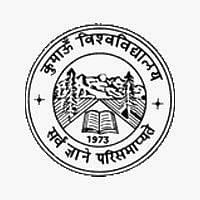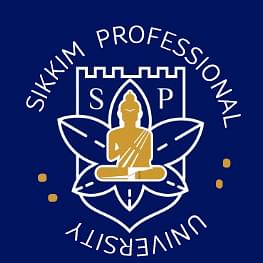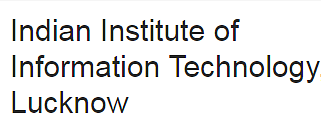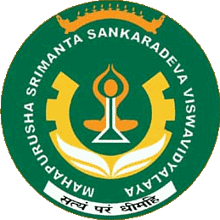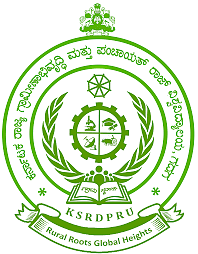Introduction about B.A. in Linguistics
Top B.A. in Linguistics college in India is an undergraduate degree program that
explores the scientific study of language. Linguistics is a multifaceted field
that delves into the structure, use, and evolution of languages, as well as
their social and cultural contexts. This program typically offers a
comprehensive overview of various linguistic subfields, including phonetics,
phonology, morphology, syntax, semantics, and sociolinguistics.
Throughout the
course of study, students analyse the intricacies of language systems,
examining how sounds are produced and perceived, how words are formed and
structured, and how meaning is conveyed through linguistic expressions. They
also explore the diversity of languages around the world, investigating the
similarities and differences between different language families and language
typologies.
In addition to
theoretical knowledge, students often engage in practical applications of
linguistics, such as computational linguistics, psycholinguistics, and language
documentation. They may learn how to analyse linguistic data, conduct research,
and apply linguistic principles to real-world problems, such as language
preservation, language acquisition, and language teaching.
Overall, a B.A. in
Linguistics equips students with a deep understanding of language and its role
in human communication, cognition, and society. Graduates may pursue various
career paths in fields such as education, translation and interpretation, language
technology, speech therapy, and language documentation, or they may choose to
further their studies in linguistics or related disciplines at the graduate
level.
What is eligibility for B.A. in Linguistics?
The eligibility criteria for B.A.in Linguistics may
vary depending on the institution offering the program. However, some common
requirements typically include:
v High School Diploma or Equivalent: Prospective students are usually required
to have completed their secondary education and obtained a high school diploma
or its equivalent, such as a General Educational Development (GED) certificate.
v Academic Background: While specific academic requirements may
vary, applicants are generally expected to have a strong academic background in
subjects such as English, languages, social sciences, or humanities. Some
programs may also require coursework in mathematics or sciences.
v Language Proficiency: Since linguistics involves the study of
language structures and systems, proficiency in one or more languages may be
advantageous. However, this requirement may vary depending on the program and
institution.
v Admission Tests: Some universities may require applicants to
take standardized admission tests such as the SAT or ACT. However, the
necessity of these tests may vary by institution and region.
v Personal Statement or Essay: Many programs require applicants to submit
a personal statement or essay explaining their interest in linguistics,
academic goals, and relevant experiences. This helps admissions committees
assess the applicant's motivation and suitability for the program.
v Letters of Recommendation: Applicants may be asked to provide letters
of recommendation from teachers, professors, or other individuals who can
attest to their academic abilities and character.
v Additional Requirements: Some programs may have additional
requirements, such as interviews or portfolios showcasing relevant work or
achievements.
Additionally, contacting the admissions office
or visiting the program's website can provide detailed information about
eligibility and application procedures.
What is admission process of B.A. in Linguistics?
The admission process for B.A. Linguistics typically involves several
steps, which may vary depending on the institution offering the program. Here's
a general overview of the typical admission process:
Research and
Exploration: Prospective
students begin by researching universities or colleges offering B.A. programs
in Linguistics. They explore the program curriculum, faculty profiles,
facilities, and other relevant information to determine if the program aligns
with their academic and career goals.
Application
Submission: Once
prospective students have identified the institutions they are interested in,
they submit their applications through the institution's online application
portal or by mail, following the specified deadlines. The application usually
includes personal information, academic history, standardized test scores (if
required), letters of recommendation, transcripts, and a personal statement or
essay.
Application
Review: After receiving
applications, the admissions committee reviews each application carefully. They
assess the applicant's academic record, standardized test scores (if
applicable), extracurricular activities, letters of recommendation, and
personal statement to evaluate their suitability for the program.
Interviews (if
applicable): Some programs
may require applicants to participate in interviews as part of the admission
process. Interviews provide an opportunity for applicants to discuss their
interests, academic background, and career goals with faculty members or
admissions staff.
Admission
Decision: After reviewing
all applications, the admissions committee makes admission decisions based on
various factors, including academic qualifications, personal statement, letters
of recommendation, and interview performance (if applicable). Applicants are notified
of the admission decision typically via email or postal mail.
Acceptance and
Enrolment: Accepted
students receive admission offers, along with information about enrolment
procedures, deadlines, and any additional requirements, such as submitting a
tuition deposit. Upon accepting the admission offer and completing the
enrollment process, students secure their spot in the program.
Orientation and
Registration: Prior to the
start of classes, admitted students may attend orientation sessions to
familiarize themselves with the campus, academic policies, and support
services. They also register for courses, selecting classes related to
Linguistics and other required or elective subjects.
What is syllabus of B.A. in Linguistics?
The syllabus of B.A. in Linguistics at top college may vary depending on the institution
offering the program, as well as specific course offerings within the program.
However, here's a general overview of the typical subjects and topics that may
be covered in a B.A. in Linguistics program:
o Introduction to Linguistics: An overview of the field of linguistics,
including its history, major subfields, and theoretical frameworks.
o Phonetics and Phonology: Study of speech sounds (phonetics) and the
sound systems of languages (phonology), including articulatory phonetics,
acoustic phonetics, and phonological analysis.
o Morphology: Analysis of the structure of words and how
they are formed through processes such as affixation, compounding, and
derivation.
o Syntax: Study of the structure of sentences and phrases, including grammatical
relations, word order, and syntactic analysis.
o Semantics: Examination of meaning in language, including lexical semantics (word
meaning) and compositional semantics (sentence meaning).
o Sociolinguistics: Investigation of the relationship between
language and society, including topics such as language variation, language
change, language attitudes, and language policy.
o Psycholinguistics: Exploration of the cognitive processes
involved in language acquisition, comprehension, production, and
representation.
o Historical Linguistics: Study of language change over time,
including methods of historical reconstruction and the comparative method.
o Language Typology: Comparison of linguistic structures across
different languages to identify universal and language-specific features.
o Pragmatics: Analysis of language use in context, including speech acts,
implicature, presupposition, and discourse analysis.
o Language Documentation and Endangered
Languages: Techniques for
documenting and preserving endangered languages, including fieldwork methods
and ethical considerations.
o Applied Linguistics: Application of linguistic theory and
methods to real-world issues such as language teaching, language planning,
translation, and language technology.
o Elective Courses: Depending on the program, students may
have the opportunity to choose elective courses in specialized areas of
linguistics, such as computational linguistics, forensic linguistics,
neurolinguistics, or sign language linguistics.
o Research Methods: Training in research methods and data
analysis techniques used in linguistics, including experimental design, corpus
analysis, and qualitative and quantitative analysis.
o Capstone Project or Senior Thesis: Culminating experience in which students
conduct original research or apply their linguistic knowledge to a specific
topic of interest, under the supervision of a faculty mentor.
This syllabus
provides a broad overview of the topics commonly covered in a B.A. in
Linguistics program, but specific courses and curriculum structures may vary
between institutions. Prospective students should review the syllabus and
course offerings of individual programs to ensure they align with their
academic interests and career goals.
What are scopes of B.A. in Linguistics?
The top affordable B.A. in Linguistics college offers a wide range of career opportunities
and paths for further study due to its interdisciplinary nature and the diverse
skills it imparts to graduates. Here are some of the key scopes and
opportunities associated with a B.A. in Linguistics:
![]() Language Teaching: Graduates can pursue careers in language
teaching and education, working as English as a Second Language (ESL) or
foreign language instructors in schools, language institutes, or tutoring
centers.
Language Teaching: Graduates can pursue careers in language
teaching and education, working as English as a Second Language (ESL) or
foreign language instructors in schools, language institutes, or tutoring
centers.
![]() Translation and Interpretation: Linguistics graduates can work as
translators or interpreters, facilitating communication between speakers of
different languages in various settings such as conferences, businesses,
courts, and healthcare facilities.
Translation and Interpretation: Linguistics graduates can work as
translators or interpreters, facilitating communication between speakers of
different languages in various settings such as conferences, businesses,
courts, and healthcare facilities.
![]() Language Technology: With the increasing reliance on language
technology applications such as speech recognition, natural language
processing, and machine translation, linguistics graduates can find
opportunities in industries focused on software development, artificial intelligence,
and computational linguistics.
Language Technology: With the increasing reliance on language
technology applications such as speech recognition, natural language
processing, and machine translation, linguistics graduates can find
opportunities in industries focused on software development, artificial intelligence,
and computational linguistics.
![]() Language Documentation and Preservation: Linguistics graduates may work in language
documentation projects, collaborating with communities to document and preserve
endangered languages, or in cultural preservation initiatives in museums,
archives, and cultural organizations.
Language Documentation and Preservation: Linguistics graduates may work in language
documentation projects, collaborating with communities to document and preserve
endangered languages, or in cultural preservation initiatives in museums,
archives, and cultural organizations.
![]() Speech and Language Therapy: Graduates with a B.A. in Linguistics can
pursue further education and training to become speech-language pathologists or
therapists, helping individuals with speech, language, and communication
disorders.
Speech and Language Therapy: Graduates with a B.A. in Linguistics can
pursue further education and training to become speech-language pathologists or
therapists, helping individuals with speech, language, and communication
disorders.
![]() Research and Academia: Linguistics provides a solid foundation for
further study at the graduate level, leading to careers in research and
academia. Graduates can pursue master's or doctoral degrees in linguistics or
related fields, conducting research and teaching at universities or research
institutions.
Research and Academia: Linguistics provides a solid foundation for
further study at the graduate level, leading to careers in research and
academia. Graduates can pursue master's or doctoral degrees in linguistics or
related fields, conducting research and teaching at universities or research
institutions.
![]() Forensic Linguistics: Linguistics graduates can specialize in
forensic linguistics, applying linguistic analysis techniques to legal and
forensic investigations, including authorship attribution, language analysis in
criminal cases, and linguistic profiling.
Forensic Linguistics: Linguistics graduates can specialize in
forensic linguistics, applying linguistic analysis techniques to legal and
forensic investigations, including authorship attribution, language analysis in
criminal cases, and linguistic profiling.
![]() International Relations and Diplomacy: Linguistics graduates with proficiency in
multiple languages may find opportunities in international relations,
diplomacy, and cross-cultural communication, working for government agencies,
international organizations, or non-governmental organizations (NGOs).
International Relations and Diplomacy: Linguistics graduates with proficiency in
multiple languages may find opportunities in international relations,
diplomacy, and cross-cultural communication, working for government agencies,
international organizations, or non-governmental organizations (NGOs).
![]() Publishing and Editing: Graduates with strong language and
communication skills can work in publishing houses, editing and proofreading
written materials such as books, journals, and online content.
Publishing and Editing: Graduates with strong language and
communication skills can work in publishing houses, editing and proofreading
written materials such as books, journals, and online content.
![]() Marketing and Advertising: Linguistics graduates may find roles in
marketing research, advertising, and branding, utilizing their understanding of
language and communication to analyze consumer behavior, develop marketing
strategies, and create persuasive messaging.
Marketing and Advertising: Linguistics graduates may find roles in
marketing research, advertising, and branding, utilizing their understanding of
language and communication to analyze consumer behavior, develop marketing
strategies, and create persuasive messaging.
These scopes represent just a fraction of the diverse career opportunities available to graduates with a B.A. in Linguistics. The versatility of linguistic skills, combined with critical thinking, analytical reasoning, and intercultural competence, opens doors to various professional fields where effective communication and language proficiency are valued.





